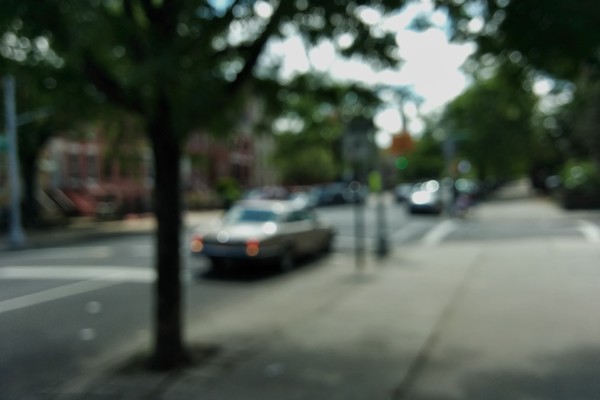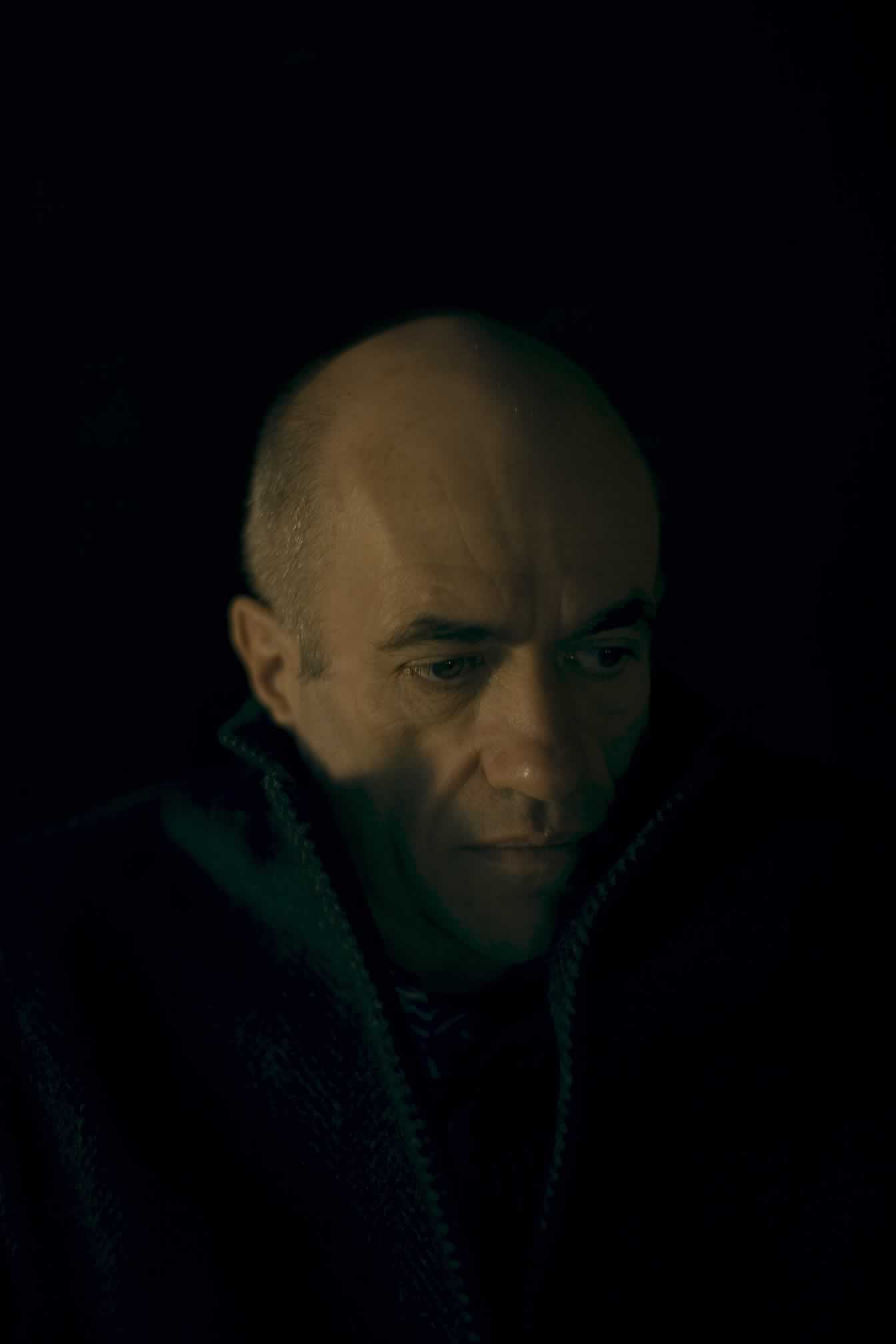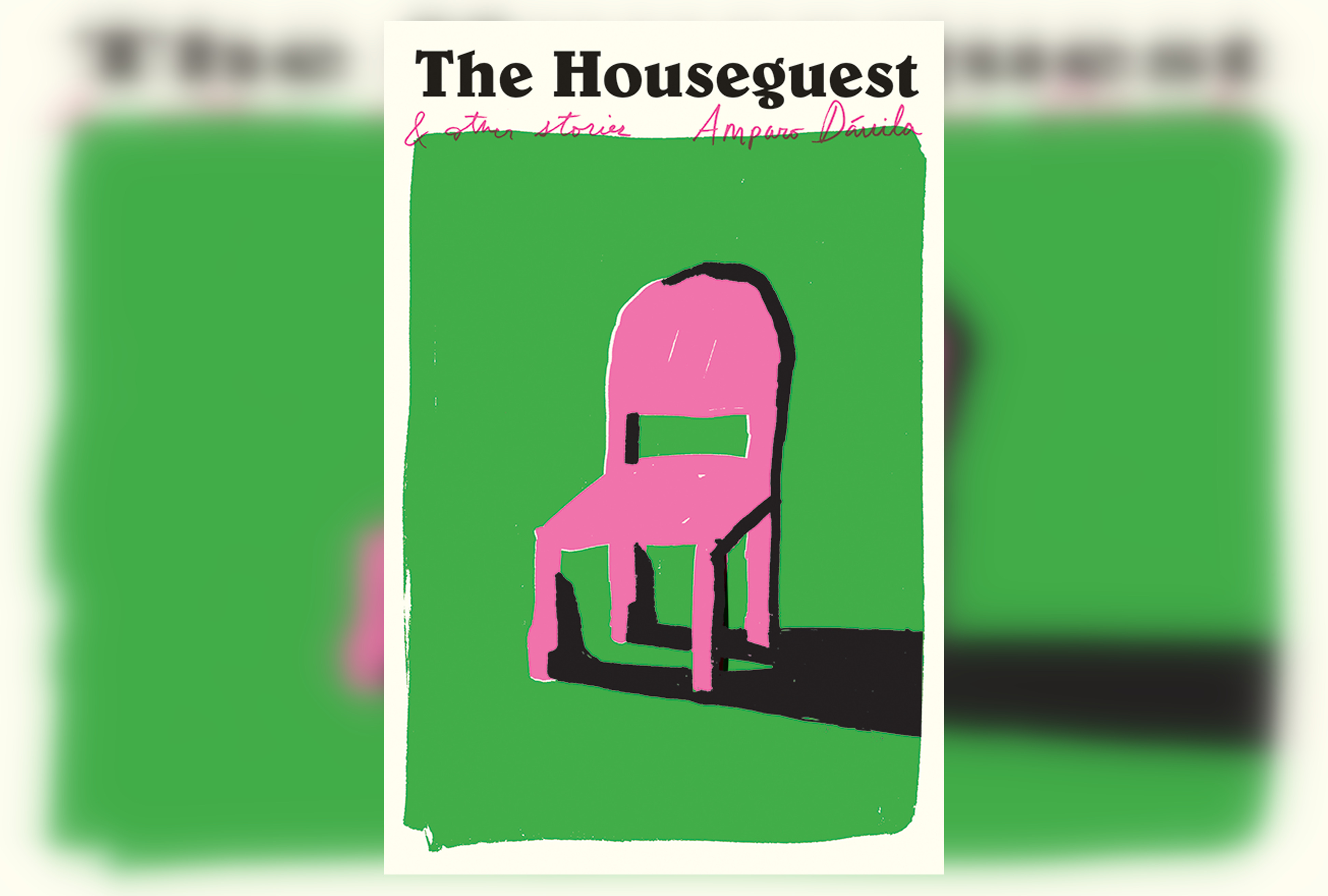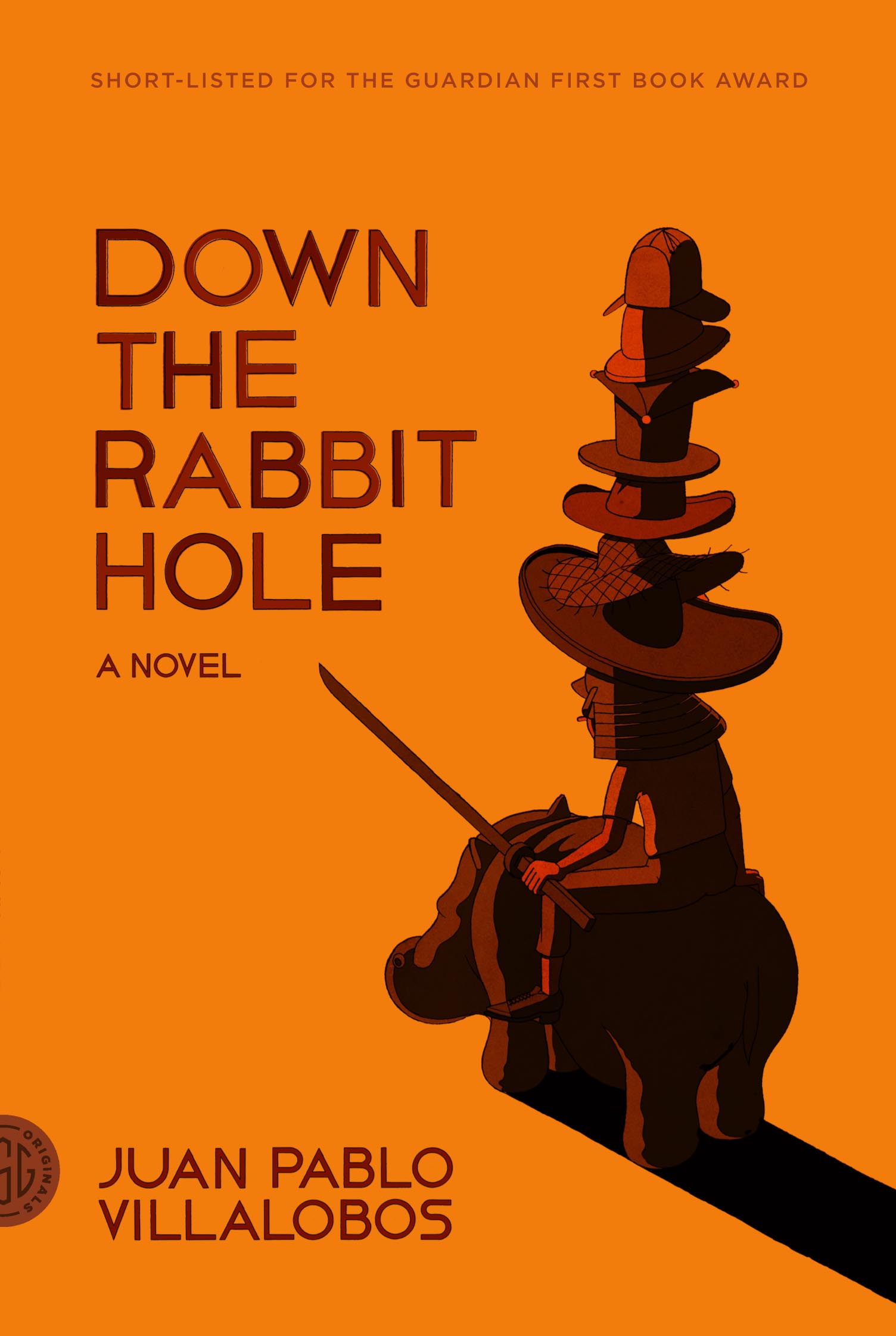1.
Mom hadn’t been in town six months when her sister, Auntie, traded her for three mid-line queen sized mattresses.
Auntie never let anyone inside. Auntie never came to visit. But when Auntie called, Mom took the train up from New Jersey – where her room smelled like salt and old water.
Train to Lower Manhattan, red train up to 125th, the smell of mold on floor one, fish on three, garlic on six, dog piss and newspaper on seven – and Auntie, with her three heads on eight.
Mom brought a red handbag from the factory where she stuffed purses with brown paper. She’d stuffed it that morning and paid full price for her sister.
Auntie eyed the purse like a bad mark and put it in the closet.
There wasn’t room in Auntie’s apartment for one queen mattress, let alone three; but they made even Mom feel special, despite their cost. Their tops hunched against the low ceiling: three cramped giants, lazy sentry.
Auntie had four kids; dirty boys who would grow up Ivy League.
They threw themselves from one bounce to the next.
Each mattress was covered in plastic.
Auntie screamed at them to stop.
Maybe, Auntie said. Maybe Mom could have one.
2.
Mattress Man wasn’t Chinese, but he liked the food. He and Auntie played tug o’ war over the check, rising out of their seats, their hands grabbing at the bill, forming an Eiffel Tower in the middle of the China Garden. Auntie always lost.
Mom didn’t like the grey food but ate.
Mattress Man had a car. He insisted on driving Mom home even though it was out of his way. The car rides were long, but they were a relief from the loud flood of soaked bodies jammed on the train. Foreign breath and sweat, the rushed transfer, the homeless men who camped across multiple seats, cursing and daring anyone to come close. Rides with Mattress Man were a kind of luxury.
After days of small talk and long pauses, Mom told Mattress Man stories to pass the time. They were true, made-up, or something in between; and Mom smoothed them together to hide the seams.
Mattress Man couldn’t tell the difference between fact and fiction; and he didn’t try. Sometimes, Mom couldn’t either – her own words surpassing her body, her mouth, filling the car.
Like the rest of The City, Mattress Man had an old life in an older country. He had a wife, two daughters and a monthly pile of letters he threw away unopened. He left that part out. He was here to have sons like Auntie’s.
Mom felt bad for him: his flat brown toad face; pockmarked from years of bad skin. So the stories continued.
Auntie kept the mattresses and made sure Mom got into his car after every visit. Mom memorized each turn (11), the number of blocks to the Holland Tunnel (46), the minutes they sat in the tunnel (30), how long she could hold her breath. She memorized the roads by bumps and turns and seconds; how not to get turned around.
And everyday Auntie would ask: When when when?
3.
By winter, even Auntie was tired of the grey food.
One night, Auntie’s kids screamed so loud for Pizza, the group filed out of the China Garden in shame. Mom had never had pizza. Auntie had no words. Mattress Man hated eating with his hands.
There was no Eiffel Tower. Mattress Man lent Auntie the money and refused a slice.
After pizza Auntie shoved Mom into the car and bowed deeply, repeatedly, until she grew small then disappeared from sight.
Mom closed her eyes.
This time there were too many turns, more bumps than wide smooth avenues. No swerve to miss the pot holes on Broadway. No Broadway at all.
Where are we going?
They pulled into a motel off the West Side Highway, where Mom could see past the gas station into New Jersey. Her room, the old water smell.
Mattress Man stopped the car and opened the door. He wanted to tell her a story –
4.
Once upon a time, Mattress Man caught a toad.
The toad was an old ghost, returning life by life. Next time he would be a wolf, a butterfly, a human being.
The toad begged for his life, as he had just emerged from the muck; had just discovered ground.
But Mattress Man hung the animal by one kicking, broken leg and turned him over a spit. When the toad could stand no more, he wept:
Do not eat me, please let me die and begin again.
When I am a wolf, I will spare you.
Mattress Man cut the weeping toad open – mouth to belly – and scooped the jeweled insides. Mattress Man did not believe in ghosts or toads. It was wartime and he was hungry.
He returned home full. He undressed for his wife and she screamed at the sight.
From then on, every time Mattress Man touched his wife, he grew brown. The boils appeared and erupted. Every time, she bore him frogs, and he consumed them violently.
Until one day she bore him two beautiful daughters.
But Mattress Man didn’t want daughters.
In America, Mattress Man ate well.
5.
When Mom was twenty-seven, her sister gave her away to a mattress salesman.
Mom had never been inside a motel room.
The carpet was once beige, now dappled with weary stains and tread.
The curtains were closed. The light from the parking lot slid orange across the floor and up the walls. Outside, motel patrons murmured past, the occasional peal of laughter – people tending to their own secret lives.
Mattress Man sat himself in the room’s one chair: poked and burnt with careless cigarettes, and lit his own.
Mom stood against the closed door – with its knob and locks bulging back:
No, Mom would not bear him frogs.
But Auntie had promised. For three brand new mattresses – Mom, Auntie had sworn, was shaped to bear him sons.
Mattress Man reasoned, then begged then finally smashed the room’s only lamp against the wall.
Plunged in darkness, Mom wondered who else had dreamt in that orange place, whether they’d found a way to move on –
Up until the lights went out, she had felt sorry for him.
6.
When Mom was seventeen, Grandmother tied Auntie to a kitchen post and broke the knuckles on her right hand.
When she was eighteen, Mom ran away with a boy who promised her California.
When they brought her back, they locked her in the room she shared with Auntie. No windows, shit-where-you-eat, for months.
In the next room, Grandmother slept clutching Auntie’s hair.
When they came to trade the shit bucket for food, Mom laid there, eyes to the ceiling – dead as a fish.
Mom didn’t want any water.
Auntie spit in Mom’s food.
Once a week they scrubbed her skin raw, naked in the courtyard. Grandmother cut Mom’s hair with sewing scissors and pulled it into two tight braids that made her scalp itch. They kept her made up and dressed in her best clothes – the ones that got her into trouble in the first place.
When Auntie and Grandmother were done, they closed the door for another week.
Six months later, Mom found the pills.
She ate them.
They put her in a brand new dress and sent her away.
They cleaned the room and lent it out to travelers.
7.
The hospital was one for sinners, not the sick.
Mom spent her time wandering the halls with the women who screamed, the dulled eyes and noise, no words she could make out. She grew frustrated of trying, so did they; then they parted ways.
When she came across the women whose eyes were clear and sharp, she turned away.
She avoided the nurses who pulled her hair. Occasionally, she’d spy one of them wearing a familiar blouse, a favorite hairpin.
They put her to work. She served pale food on Fridays. On Sundays, she boiled and scraped the dirty, week-long sheets. Punching and pulling at the huge swaths of cloth, she gulped down church songs with the other working ladies: mouthing the words, consuming air.
So much shit and piss. So much blood. Her hands wiped orange then a deep burgundy-brown. She dared not touch her face. She let the saltwater sting her eyes, into the boiling vats.
—
They let her out when her father died.
They put her in the van without a shower. She left wearing the thin pajamas they gave her once a week.
During transport, she counted the buildings sprouting up between farmland; thirteen fourteen stories that rose bright and sharp alongside dirt roads. She counted eight farmers, hunched and brown. She looked at her two hands, rubbed raw.
It was Sunday. She smelled like sweat and box soap.
Her father wore light blue pajamas, like hers. Unlike hers, his name was embroidered over his chest.
She wondered if they’d misplaced his clothing, too.
She crawled into his bed and laid in the crook of his arm. His room was warm and his blanket was new. His bed didn’t smell like rubber.
Grandmother didn’t cry. Grandmother told her she smelled like shit and pulled her away from her father’s body. Grandmother yanked the plastic tags off Mom’s wrist and went off to demand the return of Mom’s best dress. Mom crawled under the hospital bed and sobbed until they could take both bodies away.
8.
The cops showed up sometime after two thirty.
Mattress Man was gone – Mom’s clothes disappeared with him. They found her under the motel bed, naked: clawing at her body, banging her head, the bruise the blood and the animal noises. Management couldn’t find her money. They couldn’t drag her outside. No one could make meaning; so they let her go.
She stumbled alone up the West Side Highway, the Hudson River in her left hand.
9.
Mold on floor one, fish on three, garlic on six, wet newspaper on seven – and Auntie, her three heads on eight.
Mom knocked on the door.
She looked like the lost and found.
She wanted some water.
Auntie threw the red purse down the stairs. Said He was coming for the mattresses, She was a liar, and slammed the door.
Mom knocked again –
10.
She would set them all on fire.
She would shut the dirty kids in the bathroom. She would push each mattress down the stairs; fling them out the window – plastic aflame. Let them call the police. Let the neighbors stare.
Let Auntie shriek: her meaningless cursing and protest.
Mom would run away. Mom would cut her own hair so no one could pull.
Mom would go to California, where she would not need her winter coat. Where she would not need her father. Where there would be no drowning, no need to hold her breath.
She would find a job gluing fake flowers to hats in a factory downtown.
On Sundays, she and the other ladies would sell the less popular arrangements at the swap meet, half price.
She’d buy her first home, her first car. She’d forever keep her hair cropped.
She would have two beautiful daughters.
Finally California, promised a lifetime ago. A place with no silent maps to memorize, no bumps and turns to count – where all the streets are broad and smooth and endlessly moving West of the Hudson.
Mom would have no need for stories. There would be nothing to explain. No reason to get into anyone’s car.
When the time came, Mom would teach her children how to disappear completely.
She would teach them necessity.
When the time came, She would teach them
to forget and run.
—




